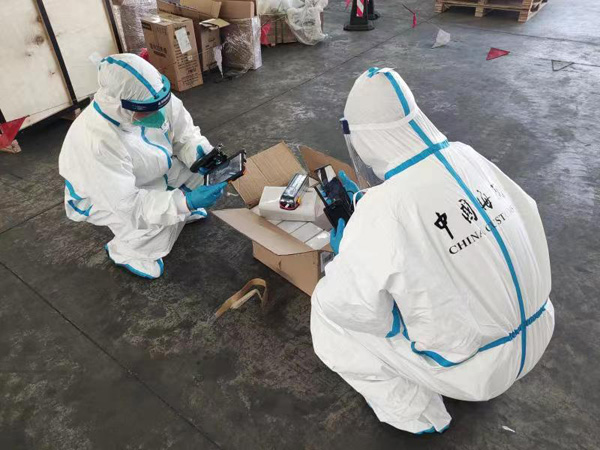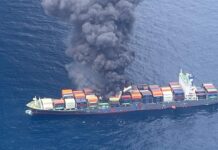
Customs inspectors in Shanghai have uncovered boxes of undeclared lithium batteries which were hidden in an export-bound container.
The incident, which happened in early April, was disclosed by China Customs’ Shanghai office on 4 May.
China Customs stated that it has been strict in inspecting containers due to dangerous goods posing fire hazards if not properly declared.
In a routine inspection, a container that was labelled as carrying consumer goods was opened and checked.
Inspectors noticed five cardboard boxes were hidden below other goods, such as toys and kettles, and were not declared as dangerous goods. The inspectors became suspicious as the cardboard boxes had burn/blackened marks and felt hot. After the boxes cooled, they were opened and the batteries, weighing 105kg in total, were discovered.
The container and its goods were then moved to the isolation area for separate storage, and at the time of writing, the goods have been transferred to the relevant department for disposal.
In a statement released on 25 April, freight transport insurer TT Club urged more vigilance after recent container ship fires allegedly involving lithium batteries.
TT Club’s risk management director, Peregrine Storrs-Fox said, “The majority of shippers will take all practicable steps to ensure that their lithium batteries achieve certification and are classified, packaged, packed, labelled and declared correctly. A small – frankly criminal – minority are motivated to avoid compliance, entering cargo into the supply chain that presents great risk to all.”
Storrs-Fox continued, “Once lithium batteries are placed into the intermodal supply chain, there is little opportunity for the cargo to be checked, visually or otherwise to verify compliance. For all who are contracted to transport, handle or store lithium batteries, therefore, developing a thorough understanding of this particular cargo is a prudent step. Moreover, due diligence into the origin of manufacture and integrity of the shipper instigating the move of these potentially lethal power sources is critical.”
Martina Li
Asia Correspondent








